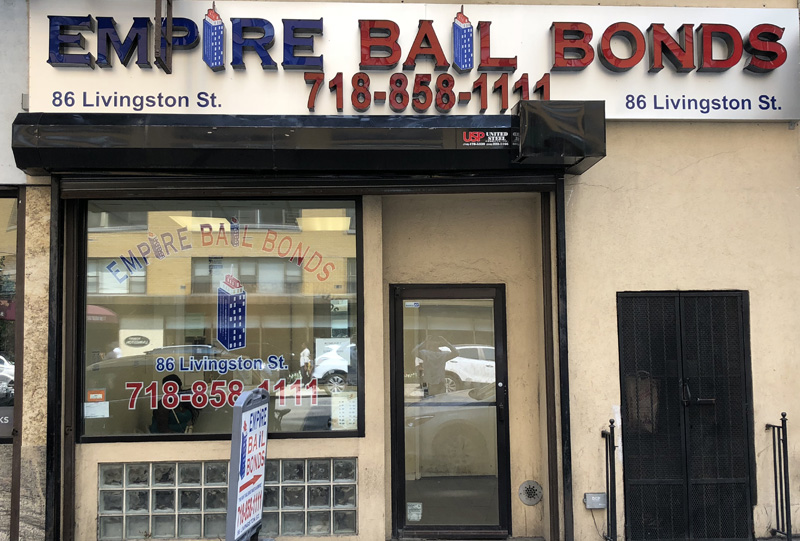Just How Bail Bonds Aid You Secure a Swift Release
Bond bonds function as a crucial system for people browsing the intricacies of the criminal justice system, supplying a path to reclaim freedom quickly following an arrest. By involving a bondsman and paying a portion of the complete bond quantity, offenders can address both legal responsibilities and personal duties without the prompt worry of complete payment. This process not only helps to preserve one's public image but also helps with a smoother shift throughout a difficult time. Nonetheless, the details of this system often prompt questions-- what are the specific benefits, and just how do they absolutely influence the total experience?
Understanding Bond Bonds
Bond bonds function as a crucial mechanism in the lawful system, supplying individuals with a method to protect their release from custodianship while waiting for test. This economic arrangement permits offenders to post bond, which is a set amount determined by the court, ensuring their look at future court dates. When a defendant can not manage the full bond quantity, they might seek help from a bail bond company, which commonly charges a cost, typically around 10% of the total bail quantity.
The bail bond functions as an assurance to the court that the defendant will abide by all legal commitments. If the defendant falls short to appear in court, the bail bond business is liable for paying the complete bail quantity. This threat incentivizes the company to make sure that the defendant shows up for their arranged hearings.
It is vital to identify that bond bonds do not cover other prices or legal fees linked with a test. Individuals need to be educated regarding their responsibilities and rights when getting in into a bail bond arrangement.
The Function of a Bondsman
Just how does a bondsman promote the release of offenders from guardianship? A bail bondsman, likewise referred to as a bond bonds agent, plays a critical role in the bond process by supplying the financial sources necessary to protect a defendant's release from jail - bail bonds licking county. When a defendant can not manage the full bond amount set by the court, the bail bondsman actions in to cover this cost, commonly charging a non-refundable costs, usually a percent of the complete bond
Once the costs is paid, the bondsman protects the accused's release by signing a surety bond with the court. This bond ensures that the offender will stand for all set up court hearings. If the offender fails to show up, the bail bondsman is in charge of paying the full bail total up to the court, which incentivizes the bail bondsman to ensure the accused adheres to their court obligations.
Additionally, bail bondsmans often evaluate the danger linked with each instance, evaluating the defendant's history, ties to the neighborhood, and probability of showing up in court (bail bonds licking county). This threat assessment informs the terms of the bond and might consist of security needs, further making sure the bail bondsman's financial investment is shielded throughout the lawful procedure
Advantages of Making Use Of Bond Bonds
Utilizing bail bonds supplies a number of advantages for accuseds facing lawful obstacles. Bail bonds allow offenders to pay a portion of the total bond amount, generally around 10%, therefore easing the instant economic concern.

Moreover, dealing with a bondsman provides access to professional guidance with the complex lawful landscape. Bondsmen are knowledgeable regarding the lawful my blog system and can offer useful suggestions, guaranteeing accuseds recognize their rights and obligations. This professional support can be vital in safeguarding a favorable result in court.
Finally, making use of a bail bond can aid maintain a defendant's public image and employment condition, which might be negatively influenced by long term apprehension. On the whole, the advantages of bond bonds extend past economic factors to consider, promoting stability during a challenging time.
The Bail Process Explained
Understanding the bail process is vital for any individual browsing the intricacies of the legal system. The bond process begins after an individual is arrested and brought before a court. Throughout the preliminary appearance, the judge determines whether bail is applicable and establishes the amount based on the extent of the fees, the offender's criminal history, and trip risk.
As soon as bail is set, the offender has numerous choices for securing their launch. They can pay the complete bail amount in cash money to the court, which is refunded upon the conclusion of the case, gave all problems are satisfied. Lots of individuals decide to utilize a bail bond service. In this instance, a co-signer or the accused pays a non-refundable cost, Click Here commonly 10% of the overall bond quantity, to the bondsman, who after that covers the full bond.
Upon settlement, the bondsman data necessary documentation, and the defendant is released from custody. It is essential to recognize the responsibilities included, consisting of attending all court hearings and complying with any kind of conditions set by the judge, as failing to do so can lead to a loss of the bail and extra legal effects.
Typical False Impressions Regarding Bond

Another prevalent misunderstanding is that bail amounts are universally set and stable. In truth, judges have discretion in identifying bail amounts based upon numerous aspects, consisting of the nature of the criminal offense, the offender's criminal background, and trip risk. In addition, numerous believe that only rich individuals can manage bond, ignoring the existence of bond bonds, which give an even more available economic option.
Some likewise presume that bond is a punishment, not recognizing that it offers as a system to make sure defendants show up for their court days while preserving their freedom throughout the legal procedure. Ultimately, lots of people are not aware that bail is not a right; it can be denied under specific situations, particularly in significant criminal offenses or repeat offenses. bail bonds licking county. Clearness on these mistaken beliefs is important for educated decisions regarding bail and the total legal procedure
Conclusion

When a defendant can not afford the full bail amount, they might look for assistance from a bail bond firm, which typically charges a fee, usually around 10% of the total bail amount.
If the defendant falls short to show up in court, the bail bond business is responsible for paying the complete bond amount. A bondsman, additionally recognized as a bond bonds representative, plays a crucial duty in the bond procedure by supplying the monetary resources necessary to safeguard an offender's launch from jail. Bail bonds permit accuseds to pay a fraction of the total bond quantity, typically around 10%, therefore reducing the immediate economic published here problem.
In a co-signer, this instance or the accused pays a non-refundable cost, normally 10% of the total bond quantity, to the bail bondsman, that after that covers the full bond.